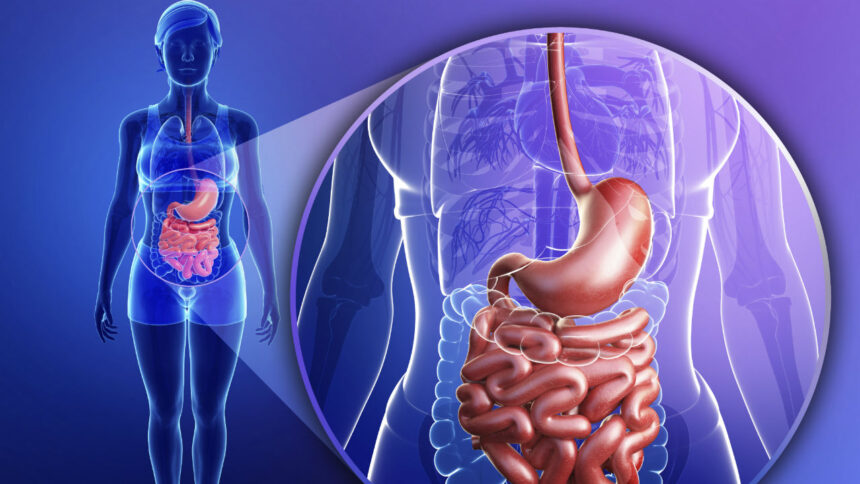Introduction:
Crohn’s Disease, a chronic inflammatory condition affecting the digestive tract, poses challenges for those diagnosed. This comprehensive guide explores the causes, symptoms, and dietary considerations associated with Crohn’s. From genetics to environmental factors and nutritional challenges, we unravel the complexities of this condition, providing insights into managing symptoms through tailored dietary approaches.
Crohn’s Disease: Unveiling Causes and Triggers
The inflammation associated with Crohn’s Disease typically occurs in the lower part of the small intestine (ileum), where it connects with the beginning of the large intestine. While commonly manifesting between the ages of 15 and 35, Crohn’s can emerge during childhood or at any stage of life. Despite ongoing research, the exact cause remains elusive, yet genetic predisposition and immune system dysfunction play pivotal roles. Factors contributing to its development include:
- Genetic Factors: Individuals with a family history of inflammatory bowel diseases or other autoimmune disorders are at a higher risk. Notably, people of Jewish descent face an increased susceptibility.
- Environmental Factors: Lifestyle habits, hygiene, stress, and notably, smoking contribute to the likelihood of Crohn’s development.
Navigating the Spectrum of Crohn’s Symptoms
Crohn’s symptoms vary widely, with no consistent pattern. Ranging from acute abdominal pain and fatigue to joint pain, diarrhea, and even inflammation of the gums, these manifestations are contingent on the affected area of the digestive tract. Key symptoms include:
- Severe abdominal pain and colicky sensations.
- Persistent fatigue.
- Loss of appetite.
- Diarrhea.
- Joint pain.
- Presence of blood in stools.
- Fever.
Nutritional Implications and Challenges
The reduced appetite often experienced by those with Crohn’s Disease leads to inadequate calorie and essential nutrient intake. Pain during food consumption can result in diminished dietary choices, potentially causing anemia and muscle loss. Additionally, certain medications prescribed for Crohn’s symptoms may hinder proper nutrient absorption:
- Corticoids: Impair calcium absorption, potentially leading to renal insufficiency with prolonged use.
- Colestyramine: Inhibits total assimilation of fats and vitamins.
- Sulfasalazine: Affects the absorption of folic acid in the body.
Crafting a Crohn’s-Friendly Diet
Creating a universal Crohn’s diet proves challenging due to individualized reactions to different foods. However, nutritionists play a pivotal role in addressing personalized needs:
- Preventing Malnutrition: Counteracting poor eating habits and addressing nutritional deficiencies.
- Correcting Harmful Eating Patterns: Identifying and rectifying dietary habits that may exacerbate symptoms.
- Addressing Nutrient Deficits: Evaluating and supplementing deficiencies that may lead to other health issues.
- Managing Food Intolerances: Investigating and managing potential food intolerances associated with Crohn’s.
- Facilitating Digestion: Promoting optimal digestion by repairing and protecting the intestinal mucosa.
- Mitigating Inflammation: Adopting measures to alleviate existing inflammation.
General Tips for Coping with Crohn’s through Diet:
- Listen to Your Body: Pay attention to how each food affects you individually. Discomfort after a specific meal might be due to condiments rather than the main ingredient.
- Chew Thoroughly: Proper mastication aids digestion. Take the time to chew your food adequately.
- Frequent, Smaller Meals: Opt for smaller, more frequent meals to ease digestion and reduce intestinal strain.
- Hydration and Smoking: Stay well-hydrated, and avoid smoking as it can exacerbate irritation.
Diet during Asymptomatic Phases or Remission:
In periods of remission, maintaining a balanced diet becomes crucial. While responses to food vary, consider the following:
Foods to Avoid:
- Gas-producing foods like cauliflower and carbonated beverages.
- Alcoholic beverages, coffee, tea, and spicy foods that may irritate the digestive tract.
- Fried foods.
Foods to Include:
- Fatty fish rich in omega-3 for its natural anti-inflammatory properties.
- Lean proteins from white fish, poultry, and pork for high-quality, low-saturated-fat protein.
- Avocado and olive oil for their vitamin E content, supporting mucosal health.
- Beta-carotene-rich foods like pumpkin and papaya to benefit internal mucous membranes.
- Probiotic-rich fermented foods such as yogurt.
Diet during Crohn’s Flares:
During flare-ups, focus on a high-calorie, low-fat diet, paying attention to hydration and avoiding hard-to-digest foods:
- Limit insoluble fiber-rich foods like whole grains and legumes.
- Minimize intake of animal fats and saturated fats found in butter, margarine, cream, red meat, processed meats, pastries, and cheeses.
- Consider eliminating lactose and gluten if diarrhea is present.
Supplementation for Crohn’s Management:
Supplements should complement a well-monitored diet, guided by a dietitian or nutritionist. Depending on individual needs, consider:
- L-Glutamine: Supports gut health.
- Soluble Fiber: Assists in bowel regularity.
- Omega-3: Natural anti-inflammatory properties.
- Probiotics: Enhances gut flora.
- Zinc, Selenium, Beta-carotenes: Address specific nutrient deficiencies.
- Lactase Enzyme: Facilitates lactose digestion.
- Folic Acid, Vitamin D, and K: Supports overall health.
Conclusion: Navigating Crohn’s Through Informed Dietary Choices
In conclusion, understanding the nuances of Crohn’s Disease empowers individuals to make informed decisions regarding their diet. From recognizing triggers and managing symptoms to adopting personalized nutritional strategies, this guide aims to provide a comprehensive resource for those navigating the complexities of living with Crohn’s.













